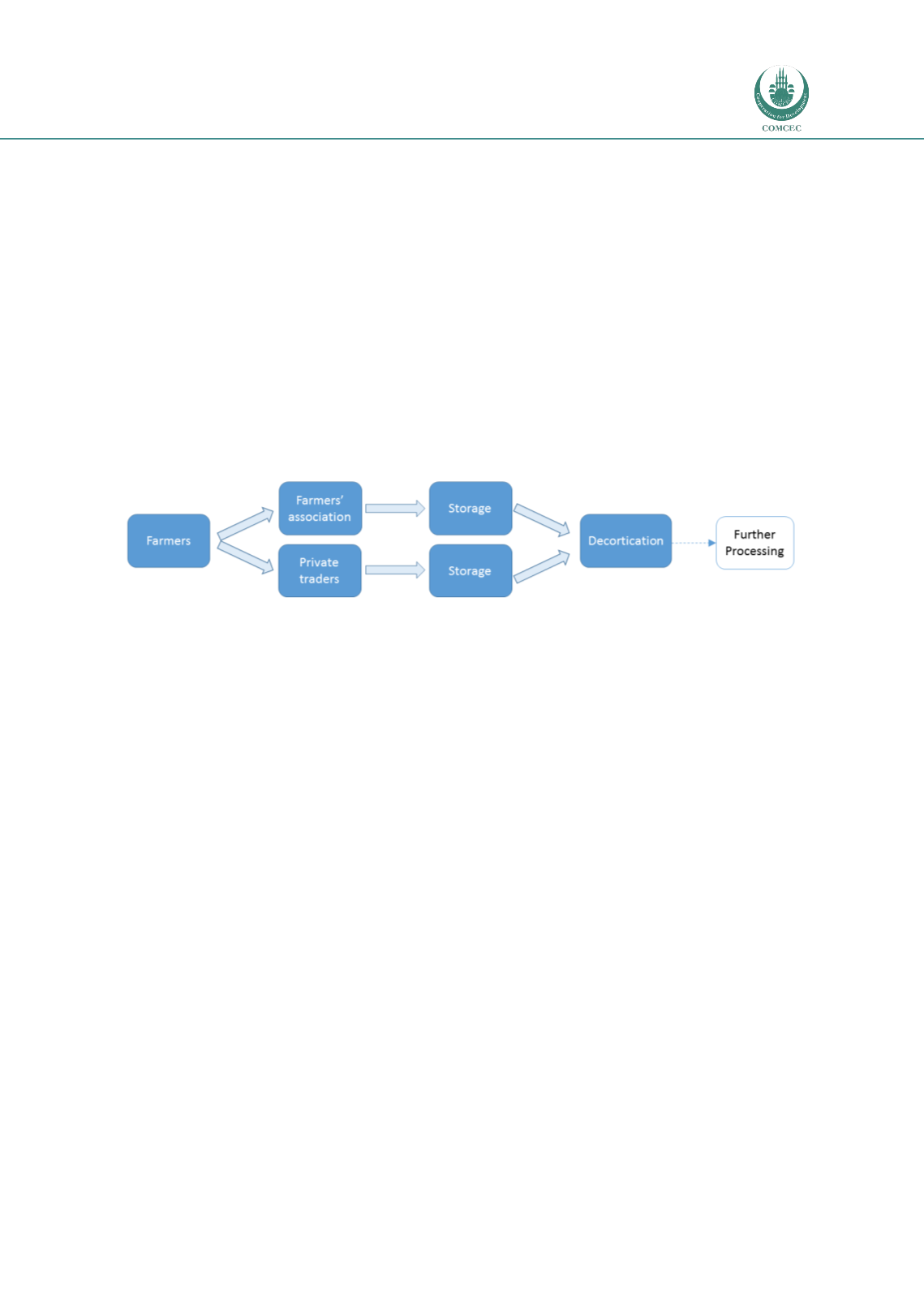

Promoting Agricultural Value Chains
In the OIC Member Countries
93
often poorly organised and belong to the poorest segment of the population with a poverty
rate of 76 percent (GoG, 2010). This highlights the important role of groundnut production for
food security, as about 40 percent of the marketable groundnut crop is sold on the domestic
market, offering an important source of protein to the local population (National Planning
Commission, 2015).
Both the value chain for the higher quality ‘handpicked selected’ nuts (HPS) and the ‘fair and
average quality’ nuts (FAQ) are similar. The current marketing system consists of a
countrywide network of farmers' associations, known as cooperative produce and marketing
societies (CPMSs), as well as private buying points operated by private traders (WTO, 2014).
Farmers can sell their produce through either of the two, and also contract credit for
production inputs (se
e Figure 5-12).
Figure 5-12 Groundnut value chain in the Gambia
Source: Authors’ elaboration
Until 2014, farmers were offered a guaranteed producer price set by the Government, which
was introduced through the 1999-03 Revitalization Strategy. The minimum price is coupled to
a price stabilisation fund. The purpose of the price determination mechanism and stabilisation
fund is to guarantee a floor price to farmers, calculated so as to provide them with a minimum
margin on their yearly investment, plus, depending on the circumstances, an upward
adjustment based on current market values (WTO, 2004). Farmers received between 60-65
percent of the export prices, depending on the parameters that were negotiated between the
stakeholders and the exchange rates prevailing at the time. However, since the abandonment
of the guaranteed price mechanism, prices for farmers seem to have dropped, which has
encouraged the smuggling of Gambian groundnuts into Senegal.
The CPMSs and private traders are responsible for the storage of groundnuts, and their sale to
industrial operators, who are involved primarily in decortication. Often traders are employed
by one of the industrial operators. Interviews revealed that from the 18 companies active in
the Gambia five years ago, only two are still operating; the rest left or quit due to extremely
high taxes, levies and other hidden trade barriers.
Only two industrial facilities to process groundnuts are currently in operation: the Denton
Bridge and Buniadu decorticating plants; both operated by the Government (WTO, 2004). This
showcases the continued dominant position of the Government in the groundnut value chain,
despite official encouragement of private sector involvement and investments. Observers
suggest that that the Government is enhancing its influence in key sectors, including groundnut
processing/manufacturing, as well as in more sensitive areas, such as television, radio
broadcasting and defence (US Department of State, 2015).

















